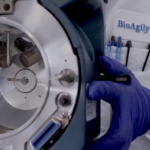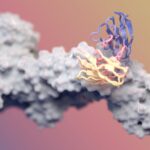Boston Scientific shelled out $533 million to buy up the remaining equity it had in Nalu Medical, a private company that produces a miniaturized neurostimulation implant aimed at treating chronic pain.
The deal is expected to be completed in the first half of next year, the company said in an Oct. 17 press release.
Nalu is forecast to surpass $60 million in sales for 2025 and generate year-over-year growth in excess of 25% in 2026, Boston Scientific said. On an adjusted basis, the company added, the acquisition is expected to “be immaterial to adjusted earnings per share (EPS) in 2026, slightly accretive in 2027, and increasingly accretive thereafter.”
Nalu’s device, which received FDA 510(k) clearance in 2019, uses a small, battery-free pulse generator implanted under the skin and connected to the spinal cord or peripheral nerves with a thin electrical lead the company touts as being able to last 18 years.
Related
The system gets its wireless power from an externally worn rechargeable disc that can be swapped out and upgraded when needed.
Boston Scientific has had a financial relationship with Nalu since 2017.
“Adding the highly differentiated Nalu Medical technology complements our existing therapies—including spinal cord stimulation, basivertebral nerve ablation and radio frequency ablation—enabling us to deliver advanced pain relief options to a wider variety of patient populations,” Jim Cassidy, president of neuromodulation for Boston Scientific, said in the release.
Naru released a post-market observational study last November indicating that 86% of users saw their lower back and leg pain cut down by at least half after three months of treatment, while 54% of participants reported pain relief scores of at least 80%.
Earlier this year, Naru reaped $65 million in new financing in a series E round to support the commercialization of the system. Investors at that time included Novo Holdings, Gilde Healthcare and Advent Life Sciences among others.



